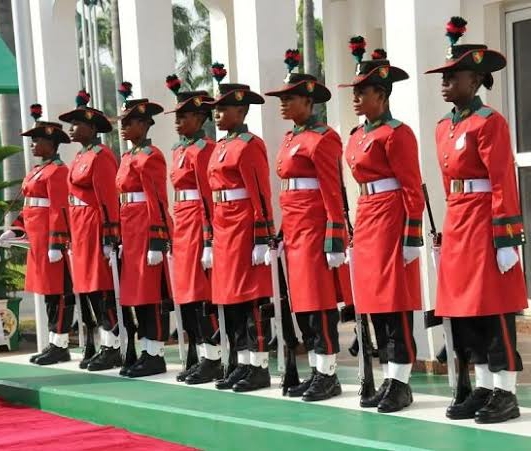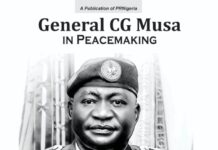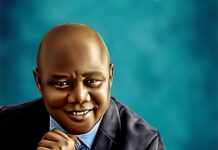A Coup In Nigeria Is unlikely but…
By Ahmed Yahaya-Joe
“Greater than the tread of mighty armies is an idea whose time has come.” – Victor Hugo (1802-1885)
The reason why such an infamous c-word has become recently topical is not only against the background of ongoing political events in neighbouring Niger since July 26 but also in Gabon on August 30, lately.
In those countries, opposition and civil society blowback concerning widespread allegations of presidential electoral fraud and other reported voting irregularities including results manipulation have culminated in military jackboots truncating the democratic process.
Particularly, Niger’s apex Constitutional Court has since judicially validated the mandate of deposed President Mohamed Bazoum, yet here we are.
Can a similar scenario play out in our nation as the main opposition petitioners proceed to the Supreme Court of Nigeria?
No.
This is because warts and all, the time for continuous democratically elected governance has come – since 1999.
Follow me.
Agreed, “many Nigerians are still smarting” from the very acrimonious fallout of the last cycle of elections that controversially played out earlier in the year, Chidi Amuta in the foreword of Olusegun Adeniyi’s Against The Run Of Play (2017) however reminds us that, “The Nigerian polity is fast emerging as Africa’s leading commonwealth of independent-minded and very rowdy political animals.”
That notwithstanding, some Nigerians are apparently suffering from selective amnesia: did General Olusegun Obasanjo really win the February 27, 1999 presidential election?
If the Court of Appeal petition panel on March 23, 1999 could uphold that victory then the recent verdict on the February 25, 2023 poll by the same Bench is history merely repeating itself with another deluge of meandering legal technicalities.
If the heavens did not fall back then they wouldn’t 24 years later especially when those that lost out back then are those currently holding sway at the Villa right now!
Lest we forget that on May 29, 2007, at his inauguration President Umar Yar’adua now of blessed memory openly admitted that the election that brought him to office had “shortcomings.”
If Mike Ahamba, SAN presumed under such circumstances his petition on behalf of then main opposition candidate, General Buhari would have smooth sailing he was badly mistaken.
On February 26, 2008 while the Presidential Election Tribunal headed by Justice James Ogebe declared while Chief Ahamba had “established substantially the non-compliance with the Electoral Act in the conduct of the election” the learned judge and his esteemed colleagues insisted the petitioner had “failed to establish the substantiality of the non-compliance of the results declared by INEC.”
End of judgment;
“We know that no one ever seizes power with the intention of relinquishing it.” – George Orwell (1903-1950)
So, beyond arcane legal technicalities the coup franchise in Nigeria has unrelatedly self-destructed itself into political irrelevance due to a slew of unintended consequences arising from the elected civilian dispensations of the said retired General Obasanjo and subsequently another retired warrior and more importantly a veteran election petitioner of 12 years cognate experience, Muhammadu Buhari.
Both have clearly proved that no so-called military background emancipator has anything better to offer than the next civilian in maverick political governance or even stellar economic management.
The option therefore left for Nigeria’s democracy is obviously, “Ever tried. Ever failed. No matter. Try again. Fail better.” – Samuel Beckett (1906-1989)
Besides, the meticulous planning and successful execution of a military coup in such a diverse and complex entity in a social media age is not the kind of picnic during the bygone monopoly of Radio Nigeria and NTA;
“This is the age of instant information, disinformation and post truth. Fact, fiction, outlandish lies and alternative facts mix and meet in a new amorphous reality. Every Nigerian is now an information hub, a reporter, editor, commentator, publisher and carrier of value judgments.”
The September 4, 2023 launching of the iconic 13-kilometer phase I of the Blue Line in Lagos is the worst possible advertisement for any military wannabe.
Incumbent Lagos governor, Babajide Olusola Sanwo-Olu was still a fifteen-year-old learner at Ijebu-Ife Grammar School in the former Ogun State when a far-flung predecessor of his, Alhaji Lateef Kayode Jakande (1929-2021) in 1980;
“Within the first year of his administration, placed an international advert calling on international manufacturers to submit proposals to build a modern Metroline in Lagos, with a view to solving the problems of bottlenecks in Lagos State. Six manufacturers from six countries responded: Canada, Spain, France, Great Britain, Japan and West Germany.
Only the Japanese consortium, MITSUI and the French consortium, INTERINFRA, were shortlisted on the basis that they were leaders in the state-of-the-art train technology.
In this regard, the Jakande administration eventually signed a contract on a feasibility study with MITSUI in June 1980 at a cost of one million naira.”
Unfortunately, the eventual take-off of the Lagos Metroline project by the French under Jakande’s military predecessor, Air Commodore Gbolahan Mudasiru (1945-2003) was nixed reportedly by direct orders of then military Head of State Buhari who ironically flagged off the same project by the Chinese in January of 2023 as an outgoing civilian president.
How after such a scandalous 40 year-long developmental hiatus any Nigerian would remotely perceive another military cowboy as a “saviour” under any guise in an aberration called “a corrective regime”?
Indeed, gone are the days of the “Zombie” generation of political swashbucklers. Nigerians have fully evolved unlike the denizens of Niger and Gabon among other Sahel region countries currently under arbitrary rule characteristically with zero tolerance for dissenting opinion.
Military folk heroes no longer exist in our political psyche. They have already been tried, tested and failed as a ruling class. Never again.
Timing is the most crucial element in every coup which according to Dr. Nowa Omoigui in his must-read Preventing Coups in Nigeria is, “a usually sudden, often forceful, illegal, typically decisive political change or overthrow of an established order of individuals who hold levers of power or control at any level in any context.”
In French, what Omoigui is referring to is a “coup d’état” – a military blow to the state.
Arguably, a civilian equivalent of such delivered by Alhaji Mujahid Asari Dokubo at the Villa last June 16 inflicted incalculable damage on Nigeria’s military institution. The self-styled militant leader created a vacuum of trust by deliberate political calculation.
No doubt, his mind-boggling revelations have indirectly diminished the coup plotting credentials of any politically ambitious officer – if any.
Dokubo’s well aimed missives with the accuracy of guided missiles brilliantly focused national attention on the military as a “fumbling and wobbling” institution of its own which beggars the dictum;
“Medice, cura te ipsum” – Physician heal thyself. First.
Staging the Niger Delta chieftain directly under Nigeria’s venerated Coat of Arms at a Villa press conference was therefore a brilliant act of political flanking – a pre-emptive civilian routing timely executed.
That singular massive propaganda act is bad enough. Since then, the abysmal lack of any counter narrative is worse because probably none credible enough exists.
Significantly, that outing also countered Datti Baba Ahmed’s previous viral “coup baiting” that borders on sedition and even treason on national TV, “Swearing in Alhaji Tinubu is as good as swearing in a military regime.”
The moral here is that every political action attracts an equal and opposite reaction.
Nigerian military officers fall into two broad-based categories:
First, are the core professionals that go about their duties with aplomb apolitically. They consider being in the military as a noble career and the means to diligently serve their nation with all due respect to constituted authority, loyally.
Singular and muted officers that must be encouraged.
Many of these few good men are our friends since in retirement.
So, our erstwhile officers and gentlemen, thank you for your service. Including now surprisingly serving Guardswomen at the Quarter guard in Aso Rock Villa.
Read Also:
Second, are those soldiers of fortune with no altruist reasons to be in uniform. They are the public enemy number one, the wolves in wolf’s clothing described in p. 218 of the 2002 memoirs of a onetime Army chief, Mohammed Chris Alli entitled The Federal Republic of Nigeria Army: The Siege Of A Nation as belonging to, “a stock of professional coup merchants and artisans.”
These pathological and pugnacious officers must be constantly weeded out of service.
While each category perceives itself being greater Caesars considering the other lesser ones, ironically, based on Moltke’s classification of military officers also known as the Von Manstein Matrix, the most hard-working and intelligent officers are deemed best suited for only staff duties “to direct the right things to happen” while those that are certified lazy albeit intelligent
“make the right things to happen but in the easiest possible manner” are prepared for the highest role as commanding officers.
Field Marshal Helmuth Moltke (1800-1891) was the chief of staff of the formidable Prussian Army for 30 years. He is regarded as the founder of the modern way of commanding armies to date the world over.
Perhaps why politically exposed officers always seem to possess a sufficiency of emotional intelligence to constantly position themselves as heroic “redeemers” as they are wired to be supreme opportunists by orientation.
Unfortunately, the recurrent lack of enlightened self-interest among civilian politicians creates the enabling environment for such soldiers to thrive, “with no external enemies to fight, military heroism (tends) to be sought in the political arena rather than in the battlefield.”
The anatomy of coups in Nigeria has therefore been a mixed bag.
Successful coups:
1. July 29, 1966 against General Johnson Aguiyi-Ironsi (1924-1966)
Note that the January 15, 1966 attempt is not listed as successful because the “Five Majors” mainly involved were not able to secure the reins of the federal government.
It was General Ironsi who actually received the signed handover from Alhaji Zanna Bukar Dipcharima (1917-1969) on behalf of the Balewa government.
Reportedly, playing out after the then GOC of the Nigerian Army had declared to the remnants of the First Republic cabinet, “You either hand-over as gentlemen or hand-over by force,” as collaborated by Chief Richard Akinjide (1930-2020) who was present.
2. July 29, 1975 against General Yakubu Gowon.
3. December 31, 1983 against President Shehu Shagari (1925-2018) who in his own words summarized the multidimensional conspiracy against him as “coup baiting” in page 470 of his 2001 memoirs entitled Beckoned To Serve
4. August 27, 1985 against General Muhammadu Buhari.
5. The August 27, 1993 stepping aside of General Ibrahim Babangida.
This was actually a fait accompli by his own loyalists thereby qualifying as a coup, “Major-General Chris Alli confessed that he approached General Abacha and Lt. General Salihu Ibrahim (1935-2018) with a proposal to depose Babangida,” in addition, “Colonel Abubakar Umar (commander of the armoured corps) later admitted he and other officers planned another attempt.”
See various details in Soldiers of Fortune by Max Siollun p. 251, The Federal Republic of Nigeria Army by Chris Alli pages 287-288 and Daily Independent newspaper edition of March 30, 2004
6. The November 17, 1993 resignation of Chief Ernest Shonekan (1936-2022) instigated by General Sani Abacha (1944-1998) and others including members of NDA Course 1 commissioned in 1967 – Diya, Dogonyaro and Gusau. This coup was built on the foundation of a court judgement by Justice Dolapo Akinsanya (1941-2020) delivered on November 10 declaring the Shonekan-led Interim National Government, “illegal.”
It could be recalled by November 11, a day after, Prof. Bolaji Akinyemi publicly pleaded with Abacha, “To rescue Nigeria from a terrible political and legal quagmire.” The NLC then declared a national strike on November 15 under the cover story of increment in the price of refined petroleum products by the Shonekan government.
As can be clearly discerned from the foregoing, every successful coup listed in Nigeria has always been plotted from within by trusted persons part and parcel of those that they overthrew. Another interesting common denominator is over the control of Ikeja Cantonment during each successful coup and lack of in every failed attempt from 1966 to 1997.
Unsuccessful coup attempts:
1. January 15, 1966 against Prime Minister Abubakar Tafawa Balewa (1912-1966) by the notorious “Five Majors”
2. February 13, 1976 against General Murtala Mohammed (1938-1976)
3. The 1981 plot against President Shagari by Alhaji Bukar Zanna Mandara (1932-2013) who was found guilty of Treason and sentenced to 15 years imprisonment on July 30, 1982 by Justice Fred Anyaegbunam (1922-1999), then Chief Judge of Federal High Court in Lagos;
“The commander of the Brigade (Colonel Bello Kaliel) reminded his men during a parade that they were duty bound to report any knowledge they had of coup plots against the government, and any that any soldier who failed to report a coup plot to the authorities would be punished in the same manner as the plot’s ringleaders.
Shortly after the parade, a soldier walked into his commander’s office and informed him that Mandara was trying to recruit soldiers from the brigade to over throw the government. Mandara had previously been awarded a contract to supply food to the brigade but became aggrieved when the contract was revoked in 1979 following the restoration of civilian rule.” – page 8 Soldiers of Fortune
4. December 23, 1985 arrest of Major General Mamman Jiya Vatsa (1940-1986) and others.
5. The April 22, 1990 attempt against General Babangida dubbed the “Niger Delta Coup” by some Nigerians. According to the historian Max Siollun;
“Not many realize that the April 1990 coup was in fact the third (and not the second) coup plot against the Babangida regime. I was informed by a very reliable source that the central figures in the April 1990 coup had previously planned a coup in 1987 for which Major Akinloye Akinyemi was quietly arrested, tried in secret and jailed. The government made no public announcement regarding this plot and the other plotters remained at large as interrogators could not persuade Akinyemi to reveal his accomplices.
The military’s account of the 1990 coup (which does not name Akinyemi who is now a pastor) admits that it arrested and questioned officers including Anthony Nyiam (Lt. Colonel and member of Corps of Army Engineers) and Mukoro (Major, PhD holder in Criminology and member of the Military Police) in 1987, but that after being released, Nyiam and Mukoro continued plotting before regrouping to stage the coup in April 1990.”
6. The March 1, 1995 alleged attempt by Generals Olusegun Obasanjo, Shehu Musa Yar’adua (1943-1997) including Colonel Lawan Gwadabe, Ms. Chris Anyanwu and others.
7. The December 21, 1997 arrest of Lt. General Oladipo Diya (1944-2023), Major Generals Tajudeen Olarewaju and Abdulkarim Adisa (1948-2005) including Prof. Femi Odekunle (1943-2020) and others.
Not all coup attempts are particularly mentioned in the foregoing list because as Siollun notes;
“The Shagari government received numerous warnings of coup plots against it. The Director-General of the National Security Organization (NSO), Umaru Shinkafi, detected up to ten plots against Shagari. However, most of them were nebulous intelligence chatter that the government could not act on.”
In conclusion, since no military coup succeeds without the active participation of aggrieved civilians as General Babangida reminds us on how the Second Republic was truncated in 1983;
“We couldn’t have done it without collaborators in civil society, collaborators in the media, collaborators among the people who have the means…” – page 59 This House Has Fallen: Midnight in Nigeria (2000) by Karl Maier
Under such circumstances there is an overwhelming need to put the current political ruling class on notice:
First, they must strenuously forestall the possibility of another EndSARS-type of uprising breaking out under any guise anywhere in the country. By any means necessary.
Second, assiduously preventing the return of “Restructuring” as an item on Nigeria’s political menu.
Third, as an incumbent commander-in-chief, President Tinubu should endeavour to meticulously read and learn how to properly interpret his national constituency’s political dynamics vis-à-vis the Von Manstein Matrix.
I rest my case
















